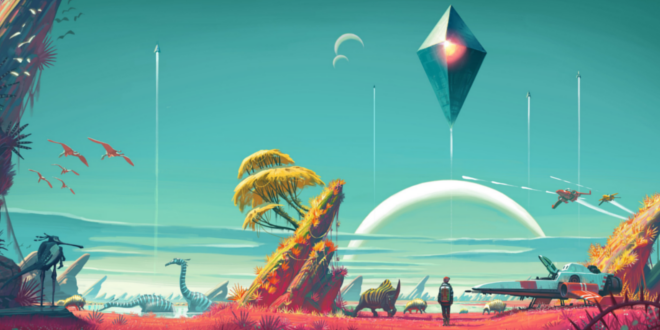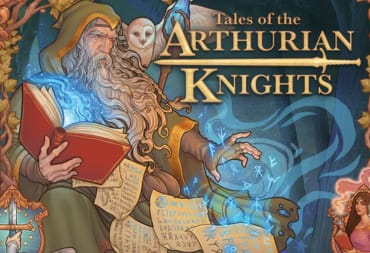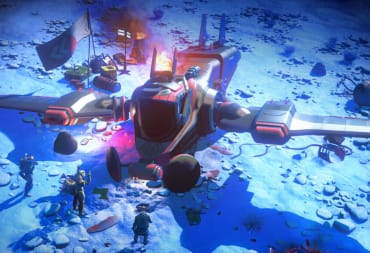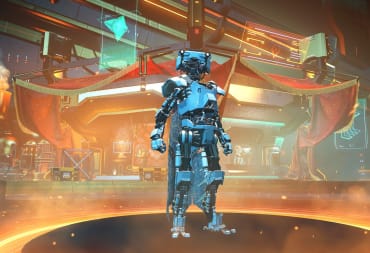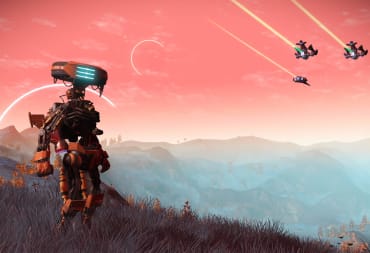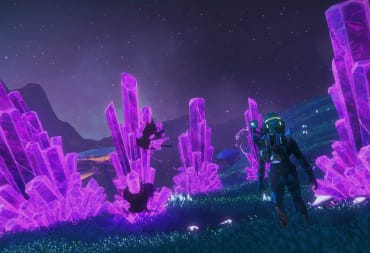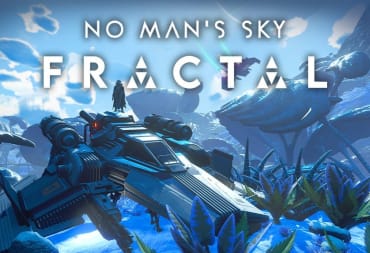Have you ever looked up to the sky, and wonder what is out there? What sort of worlds, creatures or discoveries could you unfold? These starry-eyed dreams of what’s beyond our planet, uncovering a universe on the edge of forever, has captured the minds of many since space travel began. It is a real complex feeling, to think about our significance in a universe that by all accounts, is uncaring to our presence. We can conquer the air, but over time, travel loses its wonder on us. Perhaps this is the nature of what life is, for us to question our place in this universe we call home.
Maybe I am waxing too poetically here, but these are the type of questions swimming in my mind as I play No Man's Sky. The launch period of the overly hyped space simulator game by independent studio Hello Games has been controversial, to say the least. Negative press with the PC version of the game not functioning properly, coupled with the lack of an apparent, promised multiplayer mode has led many to sour on No Man’s Sky right out of the gate. This does affect the overall perception of No Man's Sky, but in truth, should not affect the game itself. Squeeze that all away, and you have a game filled to the brim with ambition, adoration and ultimately, busywork.
Many have had trouble classifying No Man's Sky as a game, myself included. Some of the obvious design choices stem from survival titles and Minecraft, but that is just one aspect of the games design. At its heart, No Man's Sky is a space simulator in the vein of classic titles like Star Control, Elite, and Freelancer, fueling the imagination of what space can be. It is a high pedigree to follow, especially considering how some of those games have become the benchmarks for space simulation as a genre. With the growing interest in spacefaring games, No Man's Sky does struggle to attain such lofty standards, but it really does get close to them at times.
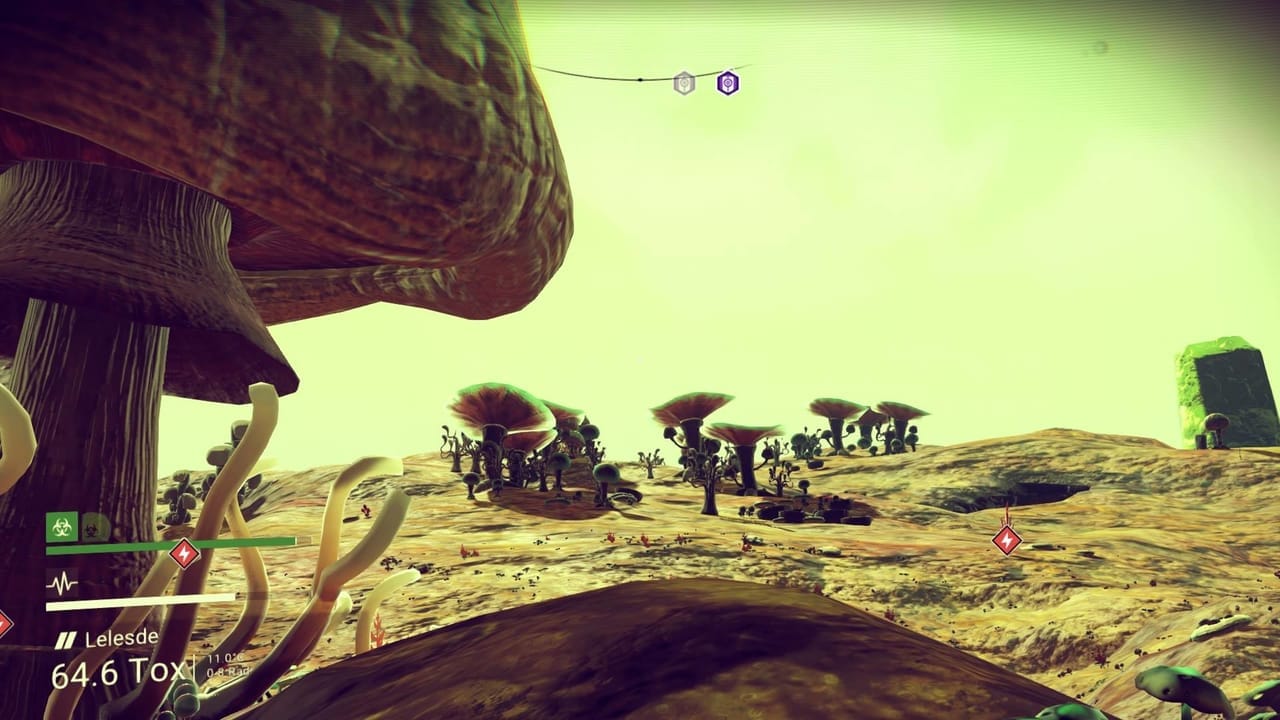
The big problem with No Man's Sky as a game is the busywork, the ultimate monotony of the gameplay mechanics. You fly, shoot, mine, craft, discover, trade and explore. You can learn the language of four alien species, discover rare materials and recipes for crafting, or simply race to the center of the galaxy as Murray has suggested in the past. It should be noted that No Man's Sky does fit into the same patterns seen in other space sim games. After all, every space sim has busywork to it, be it the MMO of EVE Online to the Kickstarted Elite: Dangerous.
The problem is, despite sharing the same task and repetition as other titles, No Man's Sky suffers from a much smaller feedback loop of activities. A typical hour in the game is all of these actions combined, leading to some to say the game is a “mile long and an inch deep.” This criticism is valid in some respect, so those expecting detailed mechanics will be sorely disappointed in finding diverse activities to do. The depth is simply not there, at least on the surface of the game.
Other little problems do occur as well, although some of them are nitpicking. The shooting mechanics are a bit slippery, with aiming being average at best in firefights both in space and planetside. Those expecting the silky-smooth gunplay of Call of Duty will be in for a rude awakening, but it is still manageable with some time and practice. The user interface is often not really helpful to the player, and little bits of the game's control scheme are sorely underutilized, like your multi-tool flashlight or the in-game grenade attachments. The overall control scheme will take some time to get used to, and for those lacking in patience, it will always be a bit awkward when playing.
Despite these flaws, No Man's Sky has a lot more to offer. True, the gameplay may be an inch deep on its own without purpose, but the gameplay when stringed together with player-made goals can transform into something else. I already regaled a story of my own experience with No Man's Sky in the first impressions article, and to me, that is the true power of the game. No Man's Sky doesn’t hold your hand, it doesn’t provide you a clear goal to follow. It suggests some actions and leaves you alone in its sandbox. You, the player, are a singular entity traveling the stars at their leisure.
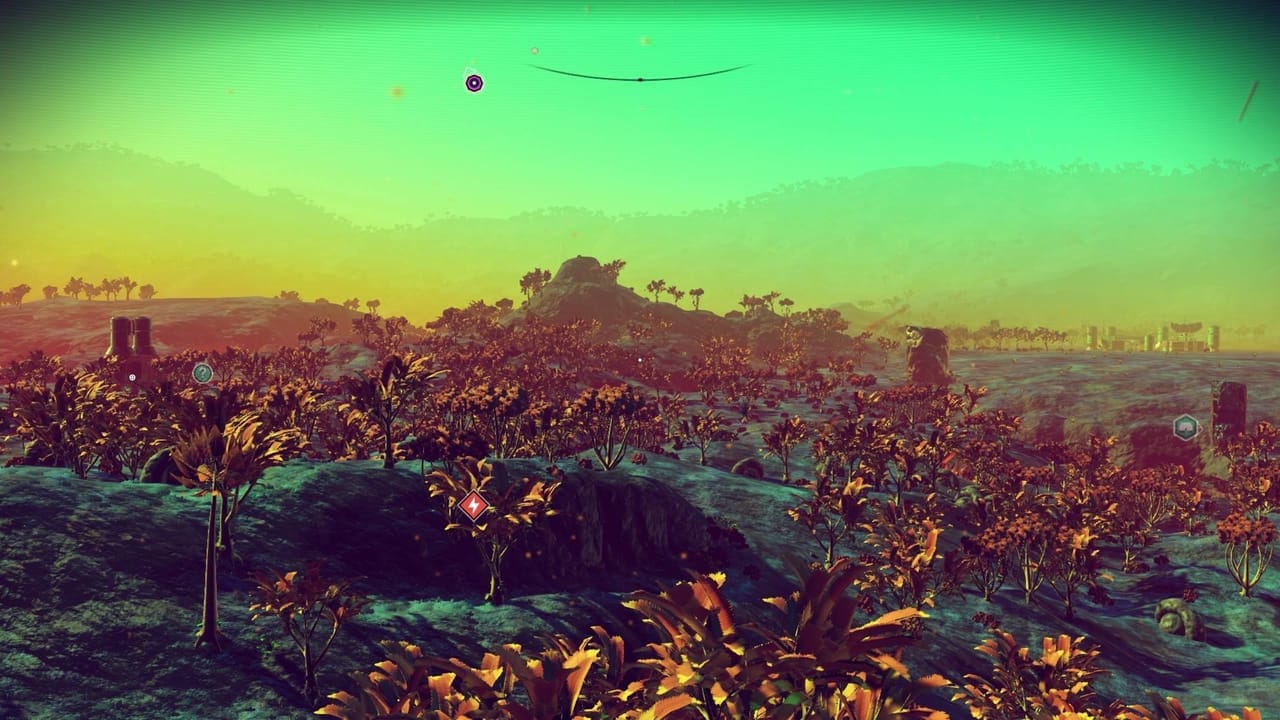
Famous mountaineer George Mallory once said he wanted to climb Mount Everest “because it’s there.” This sensibility is where the true strength of the game is, you do these actions because you want to, be it for the experience, for a goal that you create, or simply because it’s there. The curiosity we share, in a world we don’t fully know, is what carries No Man's Sky to go beyond its subpar gameplay.
This sense of whimsical wonder is the strongest asset the game has, and it delivers it in spades. The algorithm Hello Games has created is nothing short of a technical achievement, and while there is a bit of repetition here and there in what the game generates, it is frankly pushing boundaries of what can be created with a procedurally generated game. Visually, the planets are quite diverse and striking, despite some graphical hiccups and framerate drops here and there. Sound design is also top notch, with one of the best uses of ambient soundtrack music I have ever heard in a game, the sounds of 64daysofstatic are also procedurally generated and remixed.
The real charm of this universe, however, is what you make of it. On the surface, No Man's Sky offers you very little, but digging deeper you begin to see a lot more meaning and reason behind the game surrounding you. This is a AAA release with indie sensibilities you see. The ultimate point of No Man's Sky is pointlessness. The player has to fill in that blank for themselves, going on their own personal journey across a galaxy.
The mechanics often blend together to create something different each time; finding alien ruins can allow you to slowly learn the language of the different sentient species in the galaxy, which can lead to more rewards and an understanding of their culture and motivations. Raiding locked facilities, discovering downed spaceships, even trading and fending off pirates take little bits of the game's mechanics and throw them in a blender to try to create something unique. It may not always be successful, but when it does work, the personal touch of each story, each journey that No Man's Sky gives a player is a knockout moment, a piece of art coming alive in a way the player may not expect.
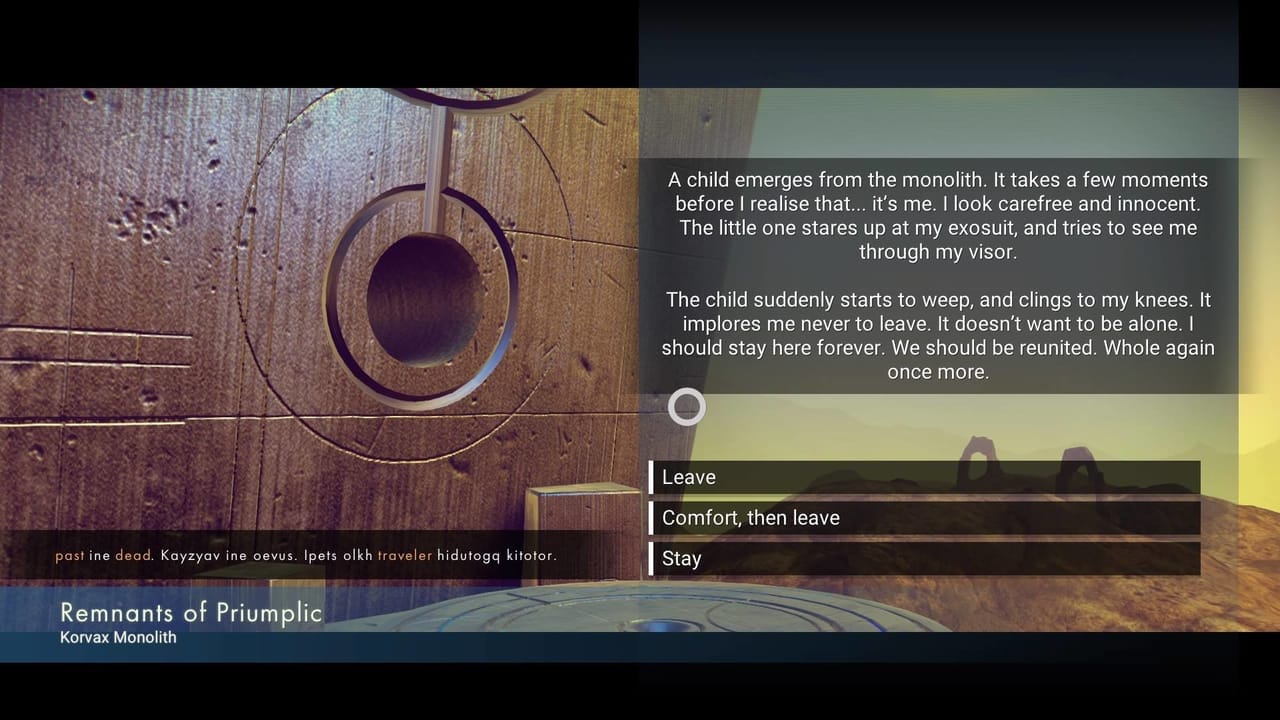
No Man's Sky will always be a divisive game, but it not only scratches that itch for many who do enjoy the game, despite the narrow feedback loop, it opens the doors to something different if you let it. The defining moment for No Man's Sky for me thus far was a moment of quiet reflection over a monolith I discovered on one world. With well-written prose, it told a tale of myself, looking back at the past, me as a child, begging for me to never leave him. With it, you have a few choices to respond, like most monoliths or dialogue options you run into. The game, while rewarding you for the “correct” choice at times, is more than just the mechanics behind the system, it is about the words and feelings in tandem with them, making the player ask a question that is truly profound about the whole experience if they choose to.
Many have always wondered if we could ever travel the stars. It is a child’s wish, if we think about it; a fantasy that will never be fulfilled for the majority of us. The whimsical sensibilities of such triviality are part of our being, we “grow out” of such dreams becoming reality. But do we ever truly stop having those dreams? Much like that moment with the monolith, No Man's Sky asked that question. Do we go back to our child-like existence, the innocence of youth and stay there? Or, do we move forward, either by reconciling that innocence or by rejecting it outright?
It is easy to reject No Man's Sky because of its underwhelming gameplay, but it is just as easy to enjoy the game on its own merits. For good or for ill, No Man's Sky is that child’s wish, the fulfillment of our wonder of exploring a galaxy on our own accord, to forge our journey in a universe on the edge of forever. As fleeting and temporary as it may be, even for a brief moment of comfort, for those who have dreamed of traveling the stars, No Man's Sky is for you.
No Man's Sky was reviewed for over 30 hours on PlayStation 4 with a copy purchased by the reviewer. It is also available for the PC via Steam and GOG (Affiliate).
Review Summary
For good or for ill, No Man’s Sky is a child’s wish, the fulfillment of our wonder of exploring a galaxy on our own accord, to forge our journey in a universe on the edge of forever.
(Review Policy)Have a tip, or want to point out something we missed? Leave a Comment or e-mail us at tips@techraptor.net
